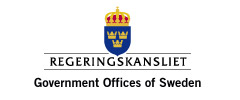Chernobyl Day, April 26
Nuclear Energy can never be a solution for Climate Change!
23.04.2010 |WECF Press Release
The scale of Chernobyl’s accident is still difficult to estimate: not only since part of the data is still kept secret and publication of studies are being thwarted, but also because the affected territory extends far beyond Belarus, Ukraine and Russia. On Wednesday April 21st , international scientists presented latest information on how people and the environment continue to be affected by the catastrophe of Chernobyl, at the European Parliament in Strasbourg [1].
One million children are still condemned to live in environments contaminated by radionuclides from Chernobyl [2]. In Ukraine, children represent 50% of the victims. The chronic contamination of these children has very serious effects on health. In Belarus today, 85% of the children in contaminated areas are ill; before the explosion, this figure was 15,2%[3]. According to scientists at the Strassbourg Conference, up to 7 generations of children will continue to bear severe health consequences from Chernobyl.
The Chief Medical Officer of the Russian Federation noted in 2001 that 10% of 184,000 liquidators had died and one third was invalid. The Ukraine provided 260,000 liquidators. According to a press release from the Ukrainian Embassy in Paris, dated 25 April 2005, 94,2% of them were ill in 2004. At the Kiev conference in 2001, it was shown that 10% of these workers, half of whom were young military recruits had died, one third was invalid and the situation was deteriorating rapidly. The Ukrainian Embassy stated that 87,85% of the inhabitants of the contaminated territory were ill and that proportion increases every year. Nevertheless, many of these studies have never been published due to an old agreement between the World Health Organisation and the International Atomic Energy Agency from 1959. In this agreement, there is a confidentiality clause which prevented a.o. the publication of the proceedings of the WHO Conference on Chernobyl (1995).
Sascha Gabizon, Director of WECF comments that “In the light of increased lobby by the nuclear industry, we have sent a letter to WHO, calling for increased transparency and research on the health effects of the nuclear fuel cycle, and an adjustment of its agreement with the IAEA to mirror the agreements with other UN agency such as FAO, UNESCO and UNIDO, which do not have such clauses”.
“Even without another Chernobyl, too many people around the world are getting cancer, become infertile, give birth to baby with defects, or are plainly chased from their ancestral lands, because of the day to day operations of nuclear power plants”, says Sabine Bock, Energy Coordinator at WECF. “We followed the path of Uranium from the raw-material, via nuclear power, to nuclear waste storage, documenting testimonies of effected communities and scientists, which we published in our book Nuclear Power -The Critical Question. What we found out is a long story of human rights abuse”.
Sascha Gabizon adds: “Not just in Chernobyl, but in the Navajo reservation in Colorado, in Mali and South-Africa, in India and Niger, in Kazakhstan and Russia, in Irak and the Pacific Ocean, and, just at our doorstep in Asse Germany, and Tricastin France, local communities health is severely impacted or at great risk, from the nuclear fuel cycle. It is not by accident that there is not one private insurance company that will take over the risk from nuclear industry. The risks of nuclear power are unacceptable to humanity. We should tell our governments to stop wasting our tax money on an industry, which in 50 years time, and after many trillions of dollars spent, has not been able to find a convincing solution to one of its major problem, safe decommissioning of nuclear power plants and thousand-year long disposal of nuclear waste”.
WECF and the Heinrich Böll Foundation are organizing an award ceremony at the United Nations Headquarters on 11th of May 2010 in New York to bring the testimonies of indigenous communities affected by uranium mining and nuclear waste to the attention of global policy makers. Representatives of indigenous communities whose livelihoods are being destroyed by uranium mining will testify, for example the Tuareq in Niger who are suffering violent resettlement due to mining interests of the French nuclear company AREVA. These indigenous peoples will give their testimonies, in the presence of ministers of environment from around the world. James Cameron has been invited to receive an award for having called worldwide attention to the problems of “energy stones” such as uranium in the real world, and unobtanium on fictional planet Pandora.
Sabine Bock concludes “We are convinced that the road to the future has to be a different one, only a nuclear-free climate-safe energy scenario is the solution. The potential for energy conservation and renewable is enormous. These exciting new technologies are the options that should be maximized instead of losing the precious time and financial resources in the support of nuclear energy. Continuing to place research and development funds into the nuclear industry derails us from developing the urgently required restructuring of the global energy supply sector”.
As stated by Mycle Schneider, International Consultant on Energy and Nuclear Policy [1]: "Worldwide, only 2% of the final energy are generated by nuclear power plants. Moreover, as of today, the renaissance of the nuclear industry takes rather the form of technology geriatrics, lifetime extension of old power plants: the average age of operating units worldwide is over 25 years, with an increasing tendency. At last, investment in nuclear energy actually increases carbon emissions: one dollar or euro spent on nuclear will save 3 to 20 times less carbon and 20 to 40 times slower (per year) than the same amount spent on energy efficiency and micropower based on renewable and combined heat and power.”
Notes for editors:
For more information and pictures, please contact
- Mrs. Chantal van den Bossche, press officer WECF
+31-6.2812 9992, chantal.vandenbossche@wecf.eu
The programme for the award ceremony on 11th May at the UN Head Quarters can be found here
Nuclear Power : The Critical Question, a publication by WECF can be ordered from wecf@wecf.eu. More information can be found here
The Letter of WECF to the WHO [1] The Conference Chernobyl, a permanent catastrophe – State of play 24 years after, organized by MEPs Rebecca Harms and Michèle Rivasi, took place on 21st March at the European Parliament in Strasbourg, including a.o. Prof. Alexei Yablokov, Dr. Alexei Nesterenko and Mycle Schneider.
[2] APPEAL BY HEALTH PROFESSIONALS FOR INDEPENDENCE OF THE WORLD HEALTH ORGANIZATION 2007
[3] Figures provided by the Minister of Health and the Academy of Sciences of Belarus during the parliamentary hearings in April 2000.
Related News
Meet the Winners of the Gender Just Climate Solutions Award at COP24
On the 70th anniversary of the Universal Declaration of Human Rights, we awarded Gender Just Climate Solutions Winners at the climate negotiations in Katowice, Poland
11.12.2018
Getting to the Future We Want
4-7 November, Brussels: European Environmental Bureau’s (EEB) Annual Conference
12.11.2018
What to expect from the climate talks that resumed in Bangkok this week?
COP24: second intersession of the climate change negotiations 2018, Bangkok, Thailand
07.09.2018
Application open for Gender Just Climate Solutions Award 2018!
WECF and partners invite you to participate in the 4th annual Gender Just Climate Solutions Awards
01.08.2018
Women and Gender Constituency Joint Statement On SB48
Real commitment to rights-based, gender-just solutions to climate change is imperative for the effective implementation of the Paris Agreement.
18.06.2018






































